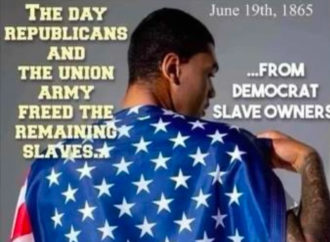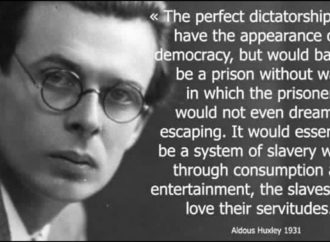Where does all this leave women? Alone mostly.

In the mid-1960s a political movement surged in the United States amidst widespread conditions of political unrest and disillusionment with society as it was. This movement was called Feminism. While it purported to seek equality for yet one more underclass in the same manner that the Civil Rights movement of Martin Luther King, Jr. sought equal rights for African Americans and the American Indian Movement, led by Leonard Peltier, Dennis Banks, Russell Means and others, sought to restore the lost rights and property of Native Americans, this new alleged underclass was purported to cut across all social and economic strata.
At first it was difficult to take seriously these graduates of Ivy League schools who compared their suffering the boredom of housework with the Cherokee Nation’s trail of tears and the reign of terror which the KKK successfully waged against black Americans in the south. Yet there did seem to be validity some of the points they made. Media portrayals of women seldom showed them as anything but weak, dependent, and not-too-smart. Real barriers to women seeking careers and inequality certainly existed throughout society, so some of us listened as they made their case.
Their case, however, was not a compelling one.
Much was made of the historical “oppression” of women in an attempt to apply the same constructivist, guilt by birth, principle that the more extreme black power advocates had sought to use to make people living today guilty of acts committed years before they were born. It didn’t work. Most people with an IQ high enough to keep them out of an institution know that you cannot change history and that you must focus on the present in order to be able to change the future.
What really sunk their arguments, though, was that what they categorized as oppression appeared from the outside as privilege. The social contract implicit in marriage and the gender roles of the male as protector/provider and the female as nurturer/caretaker already seemed a bit biased toward women in the minds of many men and particularly in the minds of women who were mated to financially successful men. These women were actually more resistant to the movement than most men, fully realizing the privileged nature of their own positions and that increased competition for the jobs their husbands held would be to their own distinct disadvantage.
However, liberalism, a deep dissatisfaction with society, and a widespread “we can change the world” “we can make it better” mentality among the baby boomers led to the belief that whatever valid points the feminists did make needed to be addressed. College age men particularly were not fond of a system that was sending thousands of them to Vietnam to become murderers or to be murdered in a war no one could explain or justify except to throw up the bogeyman of “Communism.” “Don’t trust anyone over 30” became the 11th commandment to the boomers and it was not difficult to convince them that the entire system created by their parents’ generation was corrupt and needed to be replaced.
The materialistic obsession of the post-war era created an emotional scarcity which the boomers deeply resented.
Having grown up with fathers who were most of the time physically absent working in some corporate job, and who were emotionally absent even when they were physically present, made many men of that era very receptive to the idea that existing gender roles were seriously screwed up and needed changing. Many were glad that women were taking the lead and looked forward to the day when all burdens and privileges were shared equally.
Many joined or enthusiastically supported the movement. Others adopted a “wait and see” attitude because there was a disturbing undercurrent to much of the rhetoric. From the beginning there was a pervasive hostility toward men and maleness, not just toward the rigid gender roles. The most vocal of the movement’s leaders did not acknowledge that both genders were trapped by their socialization and that both genders had contributed to building that trap, but rather took the stance that it was something men had done to women. So called “consciousness raising” sessions were often nothing more than man bashing and women often came out of them broadcasting animosity toward men. One woman I knew spoke with great pride about the “very satisfying man hating sessions” that she was part of.
Men found this deeply disturbing because they didn’t hate women and were bewildered by the fact that women seemed to derive such satisfaction from hating them.
Men, in fact, were generally anxious to build a cooperative effort to change things, but very quickly learned that the major change that feminism seemed out to accomplish was not a balance of power; instead seeking only to gain power for women in spheres where men were perceived to have it while maintaining an absolute grip on the power that women already had. There was a distinct tone of “I’m gonna get you, suckka.” Needless to say, most men were not anxious to participate in their own destruction so they were very selective in the portions of the movement they supported. Anything which seemed directed into making men into the underclass that women declared themselves to be was not supported.
Viewed from a historical perspective, what seemed at the time to be simply a tremendous tactical error on the part of the early proponents turns out to be an ideological flaw that is so core to the movement that its failure was inevitable. Men were far more receptive to the idea of true equality, more freedom of choice, and freedom from rigid gender roles than most women. They were perfectly willing to partner with women in creating the new conditions which would support long-term social change. However, all the energy of the movement seemed to be in the direction of creating more restrictions and rigidity rather than less. The validity of men’s voice and of men themselves was never acknowledged.
It quickly became apparent that the agenda of the movement was not to elevate women, but to tear down men.
Slogans such as “A woman only has to work half as hard as a man to be twice as good” (translation: men are so stupid and incompetent that even a half-assed effort is superior to their best efforts) and “A woman without a man is like a fish without a bicycle” (translation: men are completely irrelevant to women and have no place in their world) began to appear on T-shirts, coffee mugs, posters; everywhere you looked. Men were justifiably offended by such put-downs and trivialization of the challenges they faced. It made apparent that the entire movement was based on a colossal lie. Women weren’t out to be men’s equals, they were already convinced they were superior. So what were they after?
The answer came in the form of the Equal Rights Amendment. On the face of it, the fact that the amendment encountered such resistance and eventually failed seems incomprehensible. Such a common-sense reiteration of the growing body of Civil Rights legislation was superfluous, but hardly an idea which one would expect to engender such opposition, particularly with the momentum of civil rights in general. No, there had to be more to it than the fact that there were more people who didn’t believe in equality than did believe in it. If this were true, the initial 1963 legislation which already banned discrimination on the basis of gender along with race, national origin, etc. would not have been passed.
What made people oppose it was the fact that is was superfluous.
Since it added nothing to the legal framework, there must be more to it than met the eye. What most people saw in the efforts to get it passed was nothing but strong-arm tactics being used to shove down everyone’s throats a hatred and fallacy based ideology. Thinking men and women everywhere simply looked at who was supporting it and how they were supporting it and “just said no.” The movement was defeated by the very methods used to try to get it passed.
At this point in time, feminism was still completely elitist. Working class women whose hourly wage earning husbands did not bring in enough to cover the bills often worked in the same factories as their husbands. The notion that they would be “oppressed” by having a husband successful enough to make it unnecessary for them to b required to make a financial contribution to the expenses of living was laughable. Middle class women who did not attend college and were interested in being a wife and mother did not find the idea of being supported in that pursuit particularly oppressive either. Even college graduates who had grown up before the man-hating and bashing propaganda took over the public discourse found husbands who were not threatened by their desire to have a career, and the two-professional family became increasingly common from the mid-70s on.
Most women found, as one current book puts it in its title, that “Feminism is not the story of my life.”
Women in the lower socio-economic strata easily saw through the claims of oppression when they looked at the women claiming to be oppressed and compared their lives to the lives of men around them. “God willing we should be so oppressed” thought many of them. The mostly college educated, affluent, and privileged leaders of the movement did not listen to these women and align the movement with their concerns, but persisted in pursuing ideological purities which were not just irrelevant but often destructive to these women’s lives.
The true agenda of the movement can be seen in a statement by one of its godmothers, Simone de Beauvoir, author of “The Second Sex.” one of the bibles of the movement. Betty Friedan, author of “The Feminine Mystique” which is generally credited with having launched this so called “second wave” of feminism, said to Ms. Beauvoir that she believed that women who wanted to stay at home and raise their children should have the freedom to do that. Ms. Beauvoir replied: “No, we don’t believe that any woman should have this choice. No woman should be authorized to stay at home to raise her children. Society should be totally different. Women should not have that choice, precisely because if there is such a choice, too many women will make it.”
No matter how many times I read this statement, I still find it chilling. Ms. Beauvoir is proceeding from the megalomaniacal certainty that she, along with some undefined “we”, know exactly how society “should” be, and that vision includes depriving women of freedom of choice. Thus does this so- called “woman’s advocate” reveal a greater contempt for women than I have ever seen in any man. She stands ready to shove her vision of the “perfect world”, based on nothing more than her own subjective feelings, down the throat of every woman in the world; using the power and authority of totalitarian government if necessary to enforce it.
Anyone who has read George Orwell’s profoundly disturbing novel “1984” will remember the concept of double-think, which allows people to completely delude themselves about the nature of reality and which makes it possible to represent something exactly the opposite of its true nature. In 1984, seen from 1948, the Ministry of Truth deals with lies, the Ministry of Peace deals with war, and the Ministry of Plenty deals with creating artificial conditions of scarcity. Now we have a movement called “Feminism” which supposedly stands for more freedom of choice for women, which actually seeks to take away their choices and force them into a far stricter role definition that the system it seeks to destroy.
Thankfully, most women didn’t fall for it.
The defeat of the ERA was devastating to the movement. It had been the holy grail and rallying point. Without a point of focus, the movement fragmented. Many women became disillusioned and dropped out. Many women who had been inspired to choose career over family had found that it wasn’t as easy as they had thought to grab that magic ring of financial success and that the “man’s world” of work did not have grass nearly as green as it had looked from the other side of the fence. The work was harder, the hours longer, the rewards more difficult to achieve than it had appeared when they read that a woman only has to work half as hard as a man to be twice as good. They found that the 60-70 hour weeks required to “fast-track” up the ladder left little time or energy for grand social causes.
Some were mature enough and had enough integrity to say “Hm, maybe we were a bit hasty in our judgements.” Many realized that there had been more at work to motivate women to have children than the mythical “patriarchy” forcing women into the role of baby factory. We began to hear the term “biological clock” and saw women who just a few years previously had spat upon the idea of motherhood suddenly embrace it with the same fervor that they had previously dismissed it.
They turned to men and said “ok, guys we’re ready now. Do your sperm donor and protector/provider duty.”
Oops! Contrary to all the rhetoric about men, they really had been listening to what women had been saying and were seriously re-examining their own roles. Many were perfectly willing to jettison the old confining male stereotypes and become house husbands, despite the still highly negative social stigma attached to it. Many were also smarting from the years of man-bashing and took the stance “you made your own bed, now lie in it”.
Social conditions had changed radically as well. After years of steady growth
The economy was forced to absorb an unprecedented number of new workers. In a ten year span of time the size of the US work force almost doubled. At the same time US industry was suddenly facing foreign competition and other pressures that it had never had to before. There were simply not enough jobs to go around, and particularly jobs at the high end of the socioeconomic spectrum. Where before a college degree had almost guaranteed a high level of income, it quickly became the equivalent of a high school diploma only 10 years earlier, barely the minimum entrance requirement.
(an interesting side note here. Most studies of the relationship between education and income made the mistake of confusing correlation with causality. Because there was a very strong trend for income to increase as education increased, the conclusion was drawn that education caused income. Better designed and conducted studies found that there was a factor that had an even higher correlation with both income and education that they had with each other: family income and socioeconomic status. Duh! More rich people’s kids went to college than poor people’s. And, duh, more rich people’s kids became affluent themselves than poor people’s. How surprising.)
Not only were recent male graduates competing with larger numbers of other men than ever before for fewer jobs than ever before, they were also competing with a significant number of women. In the 60s there had been an average of one promotion available for every 10 workers. By the 80’s, when the biological clocks of boomer women were beginning to go off loudly, that ratio had increased to 1/30. By the end of the century it will likely be close to 1/50. The opportunities for men to generate income sufficient to be sole support of a family were going away.
Particularly since the expectations of material goods had risen significantly in that time.
During the post-war period when most boomers were born the average new house cost about $15,000 and had a one car-garage. Cars themselves cost from $1500 to $3000, except for “luxury” cars which cost as much as $5,000 – $6,000. By the time they were starting families, the average new house cost $110,000 and had a 2-car garage. Each of the two cars to fill it cost $12,000 -$25,000, except for the “luxury” cars which cost $50,000 – $300,000. The price of entry to the “middle class” had increased 10 fold, while income levels had actually dropped in the previous 20 years.
“Not a problem” thought we silly boomer males, “women have been wanting to share equally in the earning of income, now is the time.” Only everyone was in for a VERY rude awakening.
Men found out that women, despite all the screeching about how much they had changed, had actually changed not at all in any respect related to mating and dating. Despite the fact that women’s real wages had increased significantly during a period when men’s had actually declined, the majority of women still expected to marry a man both older and more successful than they were. The simple numbers of the boom made this impossible for women at the top of the income ladder, because there were simply a lot more of them than there were men a few years older. In addition, these affluent women were now occupying many of the upper income positions that males had previously held, so not only were they not available to men, depriving men of the means to make that level of income, but the demand for even greater affluence than the woman herself had achieved meant that the man had to be exceptionally successful in order to qualify. Needless to say, not many did.
Most men expected women to wake up to the unreality of their expectations and realize that they could not “have it all”, that their ideological gurus had sold them a bill of goods, that Ms. de Beauvior’s vision of society had indeed come to pass, and that they no longer had the choice to stay at home and raise their children, particularly if they did not scale back their expectations of income and material wealth. This certainly proves what women have been saying about men all along: men don’t understand women very well.
Rather than face up to cold harsh reality
Something they had never had to do when their male mates had been willing to shoulder that part of the responsibility of maintaining a household, they changed their anthem from “I am woman hear me roar” to “I am victim, hear me whine.”
The cancerous ideology called feminism had not died out after the ERA failed, it had metastasized into academia and government. While men had been busy killing themselves (literally) trying to keep up their end of the protect/provide bargain, the centers of higher learning had been churning out millions of young women brainwashed into thinking that they were oppressed and with their rage pumped up to a fever pitch. They had also turned out a nearly equal number of young men so beat down by the blame they had lived with for years that they themselves accepted it as truth.
Enter feminism “page 2” as Paul Harvey would say. In the 80s, man-bashing erupted like a volcano. Women’s frustrations over the fact that their beloved ideology of “having it all” without working for it hadn’t panned out boiled over in rabid fashion. Every problem facing women had a simple solution: blame men. If women weren’t able to get the majority of the few promotions available and reach the executive levels in 5-7 years that it took men 10 – 15 years to reach, all the while working half as hard as those men, it couldn’t possibly have anything to do with the fact that their expectations had been unrealistic; it was because men were “BACKLASHING” and building “GLASS CEILINGS.”
If men were more realistic in their assessment of their own earning potential and understood the costs of maintaining the lifestyle to which women had or wanted to become accustomed and realized that they simply couldn’t do it and as a result refused to make promises that they knew they couldn’t deliver on, it was due to the fact that they were “Peter Pans” or “commitment phobic” or a man that a woman “loves too much”. Of course it couldn’t possibly have anything to do with the women themselves because everyone knows that women are powerless. The more power they had, and the more that men tried to give them, the louder they screeched that they had none at all.
By this time men were thoroughly fed up and were beginning to backlash in reality.
Tired of adopting self-obsessed children who demanded the right to be not only equal mates partners in all decisions, but to dictate how the man should act, think, and feel, and lay immediate claim to half of whatever assets the man had managed to accumulate before she came on the scene, men began to require pre-nuptial agreements. Male rage began to boil out in the form of female bashing comics: both the stupid like Andrew Dice Clay, and the intelligent and literate like Sam Kinnison. Men lost one of their greatest spokesmen in his untimely death. Women were beginning to step back and take a realistic look at their expectations. Feminism was stalling again.
Clearly a bigger hammer was needed, and feminists already had one that they had been honing for years. The time had come to strike men in the area of their greatest vulnerability: their sexuality. Mainstream feminism had long before given up any pretense of being about equality. Fairness and even intelligence had been completely dismissed in favor of the subjectivity of how women “felt”. Virtually all the true inequities which had existed when the movement began had been addressed, remedied, and then some. Women had almost endless choices, men had almost none. The lies could be refuted by facts that most men and some women, those who had not repudiated intelligence for “feelings”, could recognize.
Time to bring out the emotional H-bomb.
The one prerogative on which women had absolutely refused to budge was the right to be compensated for access to their sexuality. Men who did not initiate aggressively, remained alone. The more men listened to what women wanted and tried to remodel themselves into the desired ideal, the less women wanted them. Time magazine announced that the sexual revolution was over. All decent men who were not willing to pursue and lie to women in order to get them into bed, or did not make enough more than the woman to be considered a viable candidate as a mate, became invisible to women.
The bomb had been built in the early 70s by such female theoreticians as Susan Brownmiller and Robin Morgan and was called rape. Always a sticky issue, rape became so broadened by the work of these two women, and others, that all men were judged equally guilty of any rape because by definition only men could commit it. Brownmiller went so far as to suggest that all men were in willing collusion with all rapists, and Morgan put forth the preposterous notion that unless the woman initiated the sex it was rape. It was only a short step for the more extreme man-haters to classify all sex between men and women, regardless of who initiated it, as rape. The box was complete.
Having successfully severed the need for any kind of reality base by insisting that how the woman “felt” was how it was, any act of sex could be considered a rape if at any time in the future the woman had second thoughts. What’s more, the severance from reality became so complete that, not only did it become unnecessary for sex to occur to be considered rape, it even became unnecessary for the woman to believe that she had been raped in order to pronounce that she had been. The rape zealots have redefined rape in such a way that in 3/4 of the cases where they claim women have been raped, the women themselves deny it. It is a weird echo of Ms. de Beauvior’s statement that these rape zealots know how sex “should” occur and that women should not be given to the choice to engage in sex if they want to because too many would exercise that option.
Now the trap was complete.
If a man did not initiate sex, he might as well enter a monastery. If he did, he was guilty of rape. If he simply gave up and masturbated to a girlie mag, he was STILL guilty of rape, due the anti-pornography efforts of an unholy alliance between the male-and-sex-hating fanatics and the religious right which had always been out to contain and destroy female sexuality.
Women did not respond any more sensibly to this new deprivation of their rights than they did to losing the right to be supported at home as a wife and mother. They responded in exactly the same way, they blamed men. If a man did not trust a woman enough to risk his career, reputation, and future on one night of sex with her, then he “feared aggressive women”. If a woman’s approach was so offensive and obnoxious that only the sociopaths that women seem to prefer over decent men would respond, then he was “impotent with latent homosexual tendencies”. Male sexuality is on the verge of being criminalized and mind-fucked out of existence.
The final front of the battle to drive men and women entirely away from each other, which is the true agenda of contemporary feminism, is called “Sexual Harassment.” Like rape this is a true crime and violation of a woman when it exists, but the definitions of it have been so expanded that almost any action toward a female will qualify. A six year old boy kissing a six year old girl, at her request, is now a criminal act. Rather than laugh at the insanity and absurdity of it, we should all be having nightmares about it.
Where does all this leave women? Alone mostly.
Finding it just about as hard to get laid as men have for ages. Put in a position where, when they do decide to initiate sexual overtures, that they are more likely to have to resort to coercion than men to bring it about. And men are getting better about refusing all the time because feminism has so criminalized their sexuality and manipulated the definitions of rape and harassment that they will always be the one prosecuted even if it is the woman who is the aggressor.
When will women ever wake up to the fact that their beloved feminism is out to destroy everything they want, need, and love, and abandon the eternal victim role for true equality?
Back to EOTM: Gender War, Sexuality, and Love
Backed Up and Credited by – no-maam.blogspot.com
































Leave a Comment
Your email address will not be published. Required fields are marked with *